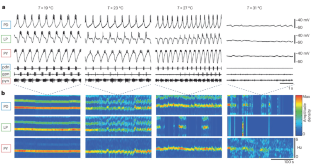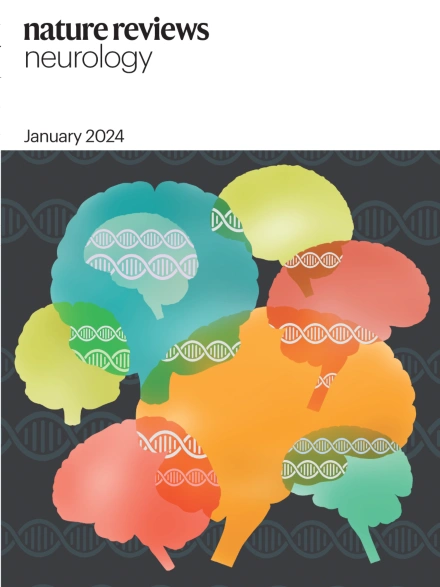Imperatives and co-benefits of research into climate change and neurological disease
IF 28.2
1区 医学
Q1 CLINICAL NEUROLOGY
引用次数: 0
Abstract
Evidence suggests that anthropogenic climate change is accelerating and is affecting human health globally. Despite urgent calls to address health effects in the context of the additional challenges of environmental degradation, biodiversity loss and ageing populations, the effects of climate change on specific health conditions are still poorly understood. Neurological diseases contribute substantially to the global burden of disease, and the possible direct and indirect consequences of climate change for people with these conditions are a cause for concern. Unaccustomed temperature extremes can impair the systems of resilience of the brain, thereby exacerbating or increasing susceptibility to neurological disease. In this Perspective, we explore how changing weather patterns resulting from climate change affect sleep — an essential restorative human brain activity, the quality of which is important for people with neurological diseases. We also consider the pervasive and complex influences of climate change on two common neurological conditions: stroke and epilepsy. We highlight the urgent need for research into the mechanisms underlying the effects of climate change on the brain in health and disease. We also discuss how neurologists can respond constructively to the climate crisis by raising awareness and promoting mitigation measures and research — actions that will bring widespread co-benefits. Evidence suggests that anthropogenic climate change is accelerating, with serious consequences for human health. This Perspective explores how the effects of climate change, such as extreme temperatures, altered weather patterns and increased air pollution, interact with the brain, and discusses how neurologists can respond constructively to the climate crisis.


气候变化和神经疾病研究的必要性和共同利益
有证据表明,人为气候变化正在加速,并正在影响全球人类健康。尽管迫切呼吁在环境退化、生物多样性丧失和人口老龄化等额外挑战的背景下处理对健康的影响,但人们对气候变化对特定健康状况的影响仍然知之甚少。神经系统疾病在很大程度上造成了全球疾病负担,气候变化对这些疾病患者可能造成的直接和间接后果令人担忧。不习惯的极端温度会损害大脑的恢复系统,从而加剧或增加对神经系统疾病的易感性。在这个视角中,我们探索气候变化导致的天气模式变化如何影响睡眠-一种必不可少的恢复性人类大脑活动,其质量对神经系统疾病患者很重要。我们还考虑了气候变化对两种常见神经系统疾病:中风和癫痫的普遍和复杂影响。我们强调迫切需要研究气候变化对大脑健康和疾病影响的潜在机制。我们还讨论了神经学家如何通过提高认识和促进缓解措施和研究——这些行动将带来广泛的共同利益——来建设性地应对气候危机。
本文章由计算机程序翻译,如有差异,请以英文原文为准。
求助全文
约1分钟内获得全文
求助全文
来源期刊

Nature Reviews Neurology
医学-临床神经学
CiteScore
29.90
自引率
0.80%
发文量
138
审稿时长
6-12 weeks
期刊介绍:
Nature Reviews Neurology aims to be the premier source of reviews and commentaries for the scientific and clinical communities we serve. We want to provide an unparalleled service to authors, referees, and readers, and we work hard to maximize the usefulness and impact of each article. The journal publishes Research Highlights, Comments, News & Views, Reviews, Consensus Statements, and Perspectives relevant to researchers and clinicians working in the field of neurology. Our broad scope ensures that the work we publish reaches the widest possible audience. Our articles are authoritative, accessible, and enhanced with clearly understandable figures, tables, and other display items. This page gives more detail about the aims and scope of the journal.
 求助内容:
求助内容: 应助结果提醒方式:
应助结果提醒方式:


